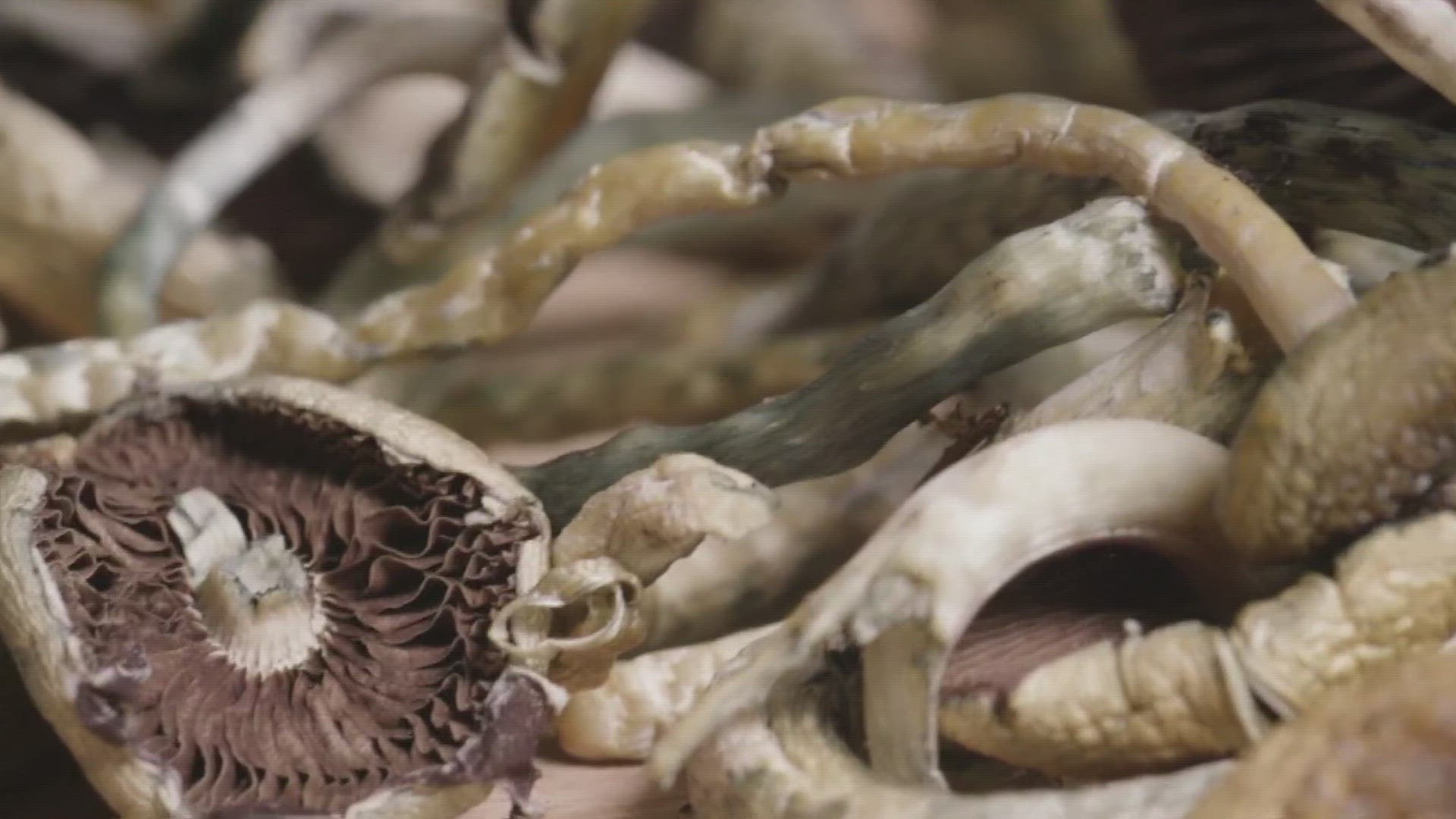SACRAMENTO, Calif. — A pair of California lawmakers introduced a bipartisan bill on Tuesday to allow people 21 and older to consume psychedelic mushrooms under professional supervision as part of an agenda to tackle the state's mental health and substance use crises.
It comes after Democratic Gov. Gavin Newsom last year vetoed legislation that would have decriminalized the possession and personal use of several plant-based hallucinogens, including psychedelic mushrooms. It was the first time the proposal by Democratic Sen. Scott Wiener made it through the legislature after years of stalling. In his veto message, Newsom, who championed legalizing cannabis in 2016, asked lawmakers to work on therapeutic guidelines and regulations.
Now Wiener has teamed up with Republican Assemblymember Marie Waldron on a proposal to allow participations to consume psilocybin — the hallucinogenic component in what’s known as psychedelic mushrooms — under the supervision of a licensed therapist. The bill also would include dimethyltryptamine (DMT), MDMA and mescaline.
Colorado and Oregon have already decriminalized psychedelic mushrooms and established regulated systems for therapeutic use of the substances. In California, San Francisco, Oakland and Santa Cruz have effectively decriminalized possession of psychedelic mushrooms, meaning a person cannot be arrested or prosecuted for possessing limited amounts of plant-based hallucinogens.
“We know that Californians are struggling with mental health and addiction challenges, and we know that psychedelics, particularly when combined with therapeutic support, can be a powerful tool to help people get their health back,” Wiener said at a Monday news briefing. “We know that California veterans and first responders have particularly benefited from these substances, and we know that many more people can as well.”
Waldron, who introduced a different bill to study the use of psychedelic therapy, said the bipartisan bill aligns with Newsom’s vision by providing safeguards around psychedelic therapy. A person would have to go through a comprehensive screening to determine if they’re fit to consume hallucinogens for therapy and engage in follow-up assessments.
The bill also would shift the state’s response to mental health crisis away from criminalization and punishment, Waldron said.
California already has “a massive network” of underground therapists who provide psychedelic therapy, Wiener said. He added the bill would “bring them above ground” through a new state licensing board that regulates the services.
The legislation does not allow for personal possession and use. That means clients can't buy the substance to go. The drugs would still be illegal under federal law. Wiener said he doesn't want to wait on actions from the federal government and that state lawmakers could authorize such regulated psychedelic use, similar to previous efforts to legalize therapeutic use of cannabis to treat cancers or HIV.
Touted as a mind-bending drug in the 1960s, psychedelic mushrooms have been used in religious or spiritual practices in some cultures for centuries and possibly thousands of years. Some researchers believe psilocybin and other drugs show promise in treating depression, anxiety and post-traumatic stress disorder. The Food and Drug Administration in 2018 designated psilocybin a “breakthrough therapy” and published draft guidance last year for researchers designing clinical trials for psychedelic drugs.
The bill is sponsored by Heroic Hearts Project, a nonprofit working with veterans to overcome trauma. Juliana Mercer, a Marine Corps veteran and a Heroic Hearts Project board member, said she's used psychedelics to manage her PTSD through programs outside of the U.S. Her organization recently sent a group of veterans to Oregon for regulated psilocybin use.
“Through education and through regulation, we'll be able to take people from doing this underground, where it may not be safe, into a place where they can do it safely,” Mercer said.
She added that will allow them to “access the healing that they deserve without fear of negative repercussions.”
The California Coalition for Psychedelic Safety and Education, which opposed the measure to decriminalize psychedelics last year, also joined to support the bipartisan bill this year. Susan Sagy, executive director of the group, called it an approach “that balances the potential benefits of therapeutic treatment with the potential risks to public health.”
Proponents of the bill anticipate it would take 18 to 24 months to implement the program if the bill becomes law. The bill would also create an education program focused on harm reduction and the potential adverse effects of psychedelics.
WATCH MORE ON ABC10: California’s teacher shortage at the heart of newly proposed legislation



















